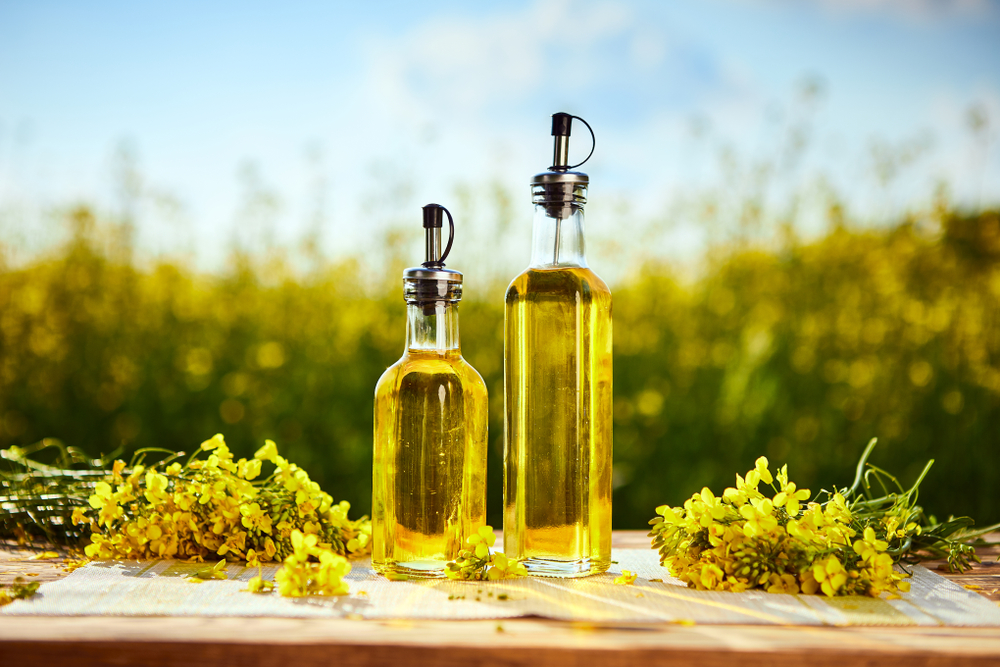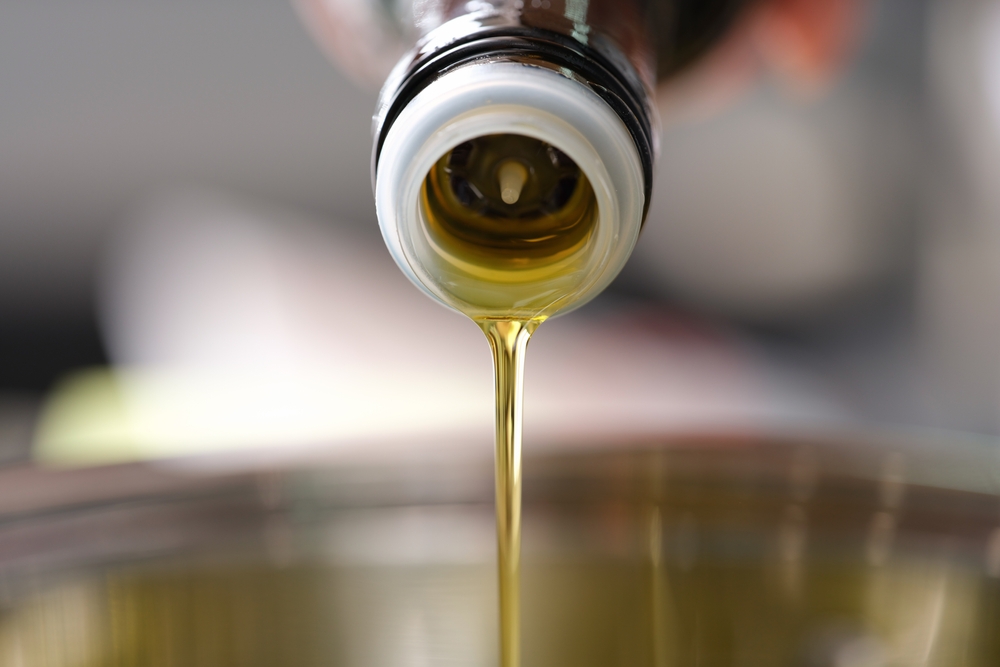It’s a safe bet to say that the majority of us eat food every day that is cooked with some kind of fat involved. A bit of butter, a tablespoon of olive oil, and chances are, canola oil. Canola oil is one of the most commonly used fats in cooking and baking. This includes in-store-bought products, at restaurants, and even at home. While it may be a small amount in each use, added up over the number of times you eat in a day and it ultimately becomes an influential ingredient in the health of our diet. For many years, experts have debated over its safety and whether or not we should continue to use it at the rate that we do. This is what the current research says.
Canola Oil: Is It Good or Bad For You?

Canola oil is a commonly used cooking oil that has been at the center of debates regarding its health benefits and potential drawbacks. While the evidence suggests that canola oil isn’t all bad and may have some health benefits, it’s important to consider its drawbacks when making a choice about its consumption. Let’s look at the pros and cons of cooking with canola oil.
The Pros of Canola Oil

Let’s begin by looking at the positives. Despite what you may or may not have read, there are plenty of positive attributes to consuming canola oil. These are the most prominent ones for you to take into consideration.
1. Heart-Healthy Fats

Canola oil contains a high amount of monounsaturated fats, which are beneficial for heart health. These fats help lower bad cholesterol levels (LDL cholesterol) and increase good cholesterol levels (HDL cholesterol), reducing the risk of heart disease. As you can imagine, this is a better lipid profile than other commonly used fats such as butter or coconut oil, which are high in saturated fats. (1)
2. Omega-3 Fatty Acids

Canola oil is one of the few vegetable oils that contains omega-3 fatty acids. These essential fats have been linked to numerous health benefits, including reducing inflammation, supporting brain function, and promoting heart health. On top of this, it has a 2:1 ratio of omega-6 fatty acids to omega-3. This is considered by some to be the desirable ratio for human health between these fatty acids. (2)
3. Source of Vitamin E

Canola oil is a good source of vitamin E, a powerful antioxidant that protects our cells from damage caused by free radicals. Vitamin E is essential for maintaining healthy skin, aiding in immune function, and protecting against certain chronic diseases. It’s also a decent source of vitamin K.
4. Versatility

When you heat an oil, you change its composition and, therefore its health benefits. Not all oils, despite their healthy benefits, stand up to cooking the way canola oil does. Canola oil has a mild taste and a high smoke point, making it suitable for various cooking methods, including frying, baking, and sautéing. Its neutral flavor allows it to blend well with various ingredients, making it a versatile cooking oil. (3)
5. Omega-6 to 3 Ratio

Some may be surprised to find omega-6s making the “pro” list. There have been concerns about the high omega-6 fatty acid content in canola oil. However, recent research suggests that the link between omega-6 intake and inflammation is not as clear-cut as previously believed. Current evidence suggests that a balanced ratio of omega-3 to omega-6 fatty acids is more important for overall health. Again, the current information suggests that this ratio is 2:1 omega-6:omega-3, the same ratio found in canola oil (6). While one should strive to consume omega-3s, one should not do so to the detriment of omega-6s. According to Dariush Mozaffarian, MD, DrPH, a cardiologist and the Jean Mayer professor of nutrition at Tufts University Friedman School of Nutrition Science & Policy, “The science is very clear: Omega-6s are good for health. Study after study shows that a diet high in these fats can help lower cholesterol and blood sugar.”
Read More: The 9 Worst Foods To Eat For Your Health
Possible Cons and Considerations

While these positive attributes make this oil seem like a no-brainer, it is not perfect. There are some drawbacks to it, which have been cause for concern among some groups and experts. This is what they are saying.
1. High Refined Nature

Canola oil is primarily a refined oil, which means it goes through a process of extraction, refining, and sometimes deodorizing. This refining process may involve the use of chemicals and high temperatures, potentially reducing the nutritional value of the oil. (4) High RBD (refined, bleached, and deodorized) oils like canola also contain small amounts of trans fatty acids, similar to what is naturally occurring butter. This is particularly concerning when oils like canola are continuously reheated to high temperatures (i.e., restaurant deep fryers), but it is less concerning for everyday cooking.
2. Genetically Modified Organisms (GMOs)

Most canola crops are genetically modified to improve their attributes. While there is no strong evidence suggesting that GMOs in canola oil are harmful to human health, some individuals prefer to avoid GMOs due to personal beliefs or concerns about their potential long-term effects. (5)
Rapeseed vs. Canola Oil

Another common misconception about canola oil that people often use in arguments against it is that it is used in the chemical and automotive industries. People then question why you would consume something that is also used this way. What people don’t understand is that rapeseed and canola oil are the same, but they’re not. There are two types of rapeseed oil, one used in industry, and the other – canola – used culinarily. These two oils are significantly different in their genetic makeup and acid profile. In order to be called canola, and therefore be allowed for culinary use, the oil must have less than 2% of its makeup be an acid called erucic acid. If it contains more than this, then it is called rapeseed oil and is only used in chemical and industrial processes. (7)
The Bottom Line

The reality is canola oil has both pros and possible cons. It contains heart-healthy fats, omega-3 fatty acids, and vitamin E, making it a potentially beneficial addition to a balanced diet. However, it is important to consider its highly refined nature.
Ultimately, the choice to consume canola oil is a personal one. Some individuals may opt to avoid it due to the refining process or concerns about GMOs, while others may find its health benefits and versatility appealing. As with any dietary choice, moderation and variety are key.
Finally, it is important to remember which “experts” you are listening to and what information you are reading. Do your best always to consult both sides, read actual studies, and make informed choices about your nutrition and your health. If you are unsure whether or not canola oil is right for you, consult with your healthcare professional. They can help you to determine the best oils for your individual health needs and preferences.
Read More: Foods You Should Consider Eliminating if You No Longer Have a Gallbladder
Sources
- “Oil, canola.” USDA
- “The Effect of Canola Oil on Body Weight and Composition: A Systematic Review and Meta-Analysis of Randomized Controlled Clinical Trials.” NCBI. Hamidreza Raeisi-Dehkordi,, et al. February 27, 2019.
- “Ask the Expert: Concerns about canola oil.” Harvard
- “Different Processing Practices and the Frying Life of Refined Canola Oil.” NCBI. Randy Adjonu, et al. October 2019.
- “A Review of the Unintentional Release of Feral Genetically Modified Rapeseed into the Environment.” MDPI. Dr. Soo In Sohn, et al. 2021.
- “The Importance of Maintaining a Low Omega-6/Omega-3 Ratio for Reducing the Risk of Autoimmune Diseases, Asthma, and Allergies.” Pubmed. James J DiNicolantonio and James O’Keefe. 2021.
- “Evidence of health benefits of canola oil.” NCBI. Lin Lin, et al. June 2013.
- Do Seed Oils Make You Sick?. Consumer Reports

